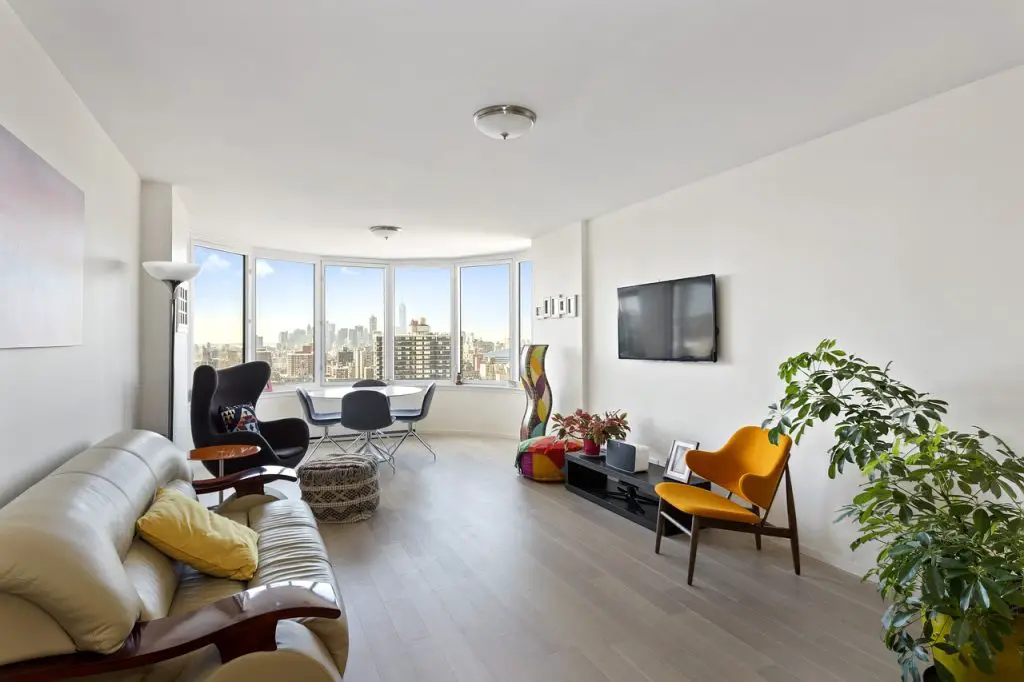In recent years, Airbnb has revolutionized the way people travel and book accommodations. With millions of listings worldwide, travelers have access to a diverse range of unique and often more affordable lodging options than traditional hotels. However, as the platform has grown in popularity, so too have regulations and rules aimed at maintaining a balance between homeowners, guests, and the local communities hosting them. One of the most significant regulatory measures is the “90-Day Rule” on Airbnb, which varies from city to city and has stirred both controversy and support. In this article, we will delve into the intricacies of the 90-Day Rule on Airbnb, examining what it is, why it exists, and how it impacts hosts and travelers.
What is the 90-Day Rule on Airbnb?
The 90-Day Rule on Airbnb is a regulatory restriction imposed by various cities and regions to limit the number of days a property can be rented out on short-term accommodation platforms like Airbnb within a specific timeframe, typically a year. This means that hosts are prohibited from renting out their property for more than a certain number of days annually. The specifics of the rule can vary significantly depending on the location, so it’s crucial for both hosts and guests to understand the local regulations in their respective areas.
The primary goal of the 90-Day Rule is to strike a balance between the economic benefits of home-sharing platforms and the potential negative impacts on local housing markets, communities, and residents. By limiting the number of days a property can be listed on Airbnb, cities aim to prevent a significant number of homes from being converted into year-round vacation rentals. This helps maintain housing availability for local residents and prevents potential disruptions in neighborhoods.
Why Does the 90-Day Rule Exist?
Preserving Housing Stock: One of the main reasons for implementing the 90-Day Rule is to preserve the housing stock for long-term residents. If too many properties are used for short-term rentals, it can reduce the availability of housing for people looking to live in the area permanently. This can lead to rising rents and a shortage of affordable housing options.
Protecting Communities: Frequent turnover of short-term guests can disrupt the sense of community in residential neighborhoods. Local residents may feel uncomfortable with a constant stream of unfamiliar faces and noise associated with short-term rentals. The 90-Day Rule aims to strike a balance between tourism and community life.
Hotel Industry Competition: To level the playing field, some regulations are put in place to ensure that homeowners offering accommodations on platforms like Airbnb pay taxes and comply with safety and zoning regulations, just as traditional hotels do. The 90-Day Rule can help ensure that short-term rentals are regulated similarly to hotels.
Tourism Management: Some tourist destinations experience seasonal peaks in tourism, which can strain resources and infrastructure. The 90-Day Rule can help manage these peaks by limiting the number of short-term rental properties available during peak tourist seasons.
How Does the 90-Day Rule Impact Hosts?
Hosts on Airbnb can be significantly affected by the 90-Day Rule, and its impact varies depending on individual circumstances and location. Here are some key ways in which hosts are affected:
Reduced Earnings: Hosts who rely on Airbnb as a primary source of income may face reduced earnings due to the limitation on rental days. If they exceed the allowed number of days, they may face fines or other penalties, and their listings could be removed from the platform.
Seasonal Restrictions: In some areas, the 90-Day Rule may be more lenient during certain seasons when tourism is lower. This allows hosts to take advantage of peak tourist periods while complying with the rule during quieter times.
Increased Competition: With the limitation on the number of rental days, hosts may face increased competition for the available days, as many hosts will be vying for the same limited pool of guests during peak seasons.
Creative Solutions: Some hosts have found creative ways to work around the 90-Day Rule, such as listing multiple properties or partnering with neighbors to offer extended stays. However, these solutions may not always be in compliance with local regulations and could lead to legal issues.
How Does the 90-Day Rule Impact Travelers?
Travelers who use Airbnb also feel the impact of the 90-Day Rule, albeit in different ways:
Limited Availability: Depending on the destination and time of year, travelers may find that there is limited availability of Airbnb listings due to the 90-Day Rule. This can make it challenging to find suitable accommodations, especially during peak tourist seasons.
Higher Prices: With limited availability, prices for Airbnb listings may increase due to higher demand. Travelers may need to budget more for accommodations or consider alternative options like hotels or traditional bed-and-breakfasts.
Booking Restrictions: Travelers planning longer stays in a particular location may need to plan their trips carefully to ensure they do not exceed the 90-day limit. This could involve booking multiple accommodations or opting for longer-term rentals outside of Airbnb.
Variations in the 90-Day Rule
It’s essential to note that the 90-Day Rule is not standardized across all cities and regions. Each location can have its own unique regulations and interpretations of the rule. Here are some examples of how the rule can vary:
Annual vs. Rolling Calendar: Some areas count the 90 days on an annual basis, while others use a rolling calendar. In an annual system, hosts can rent their property for up to 90 days per calendar year, regardless of when those days occur. In a rolling calendar system, hosts can only rent their property for 90 days in any consecutive 365-day period, starting from their first booking.
Host Occupancy: Some places only count the days when the host is not present in the property. If the host lives in the property while renting out a spare room, those days may not be counted toward the 90-day limit.
Exemptions: Certain locations may provide exemptions to the rule for hosts who meet specific criteria. For example, hosts who only rent out their property occasionally or who are providing housing for medical professionals during a pandemic may be exempt from the 90-Day Rule.
Registration and Reporting: To enforce the 90-Day Rule, some cities require hosts to register their listings and report their rental activity regularly. Failure to do so can result in penalties.
How to Comply with the 90-Day Rule
For hosts looking to comply with the 90-Day Rule on Airbnb, there are several steps to take:
Know the Local Regulations: The first and most crucial step is to understand the specific regulations in your area. Local governments or Airbnb may provide resources and guidelines to help hosts comply with the rule.
Use Booking Calendars: Many hosts use booking calendar tools provided by Airbnb to keep track of their rental days. These calendars automatically update and can help hosts stay within the allowed limit.
Monitor Bookings: Regularly monitor your booking activity to ensure you do not exceed the 90-day limit. Be proactive in blocking off dates or declining booking requests when necessary.
Seek Legal Advice: If you are unsure about how the 90-Day Rule applies to your situation, consider seeking legal advice from a professional with expertise in short-term rentals and local regulations.
The 90-Day Rule on Airbnb is a significant regulatory measure aimed at balancing the economic benefits of short-term rentals with the preservation of local housing markets and communities. It impacts both hosts and travelers, leading to potential challenges and opportunities for both parties. As the rule continues to evolve and adapt to the changing landscape of short-term accommodations, it is essential for hosts and travelers to stay informed about local regulations and compliance measures to ensure a positive experience for all stakeholders in the sharing economy.
Controversies Surrounding the 90-Day Rule
The 90-Day Rule on Airbnb has not been without its fair share of controversies. While its intentions are clear – to strike a balance between short-term rentals and the availability of housing for local residents – it has sparked debates and concerns on multiple fronts:
Economic Impact: Critics argue that the 90-Day Rule may hurt the income potential of hosts, especially those who rely on short-term rentals as a primary source of revenue. This can be particularly challenging for hosts who live in expensive cities and depend on Airbnb to supplement their income.
Enforcement Challenges: Enforcing the 90-Day Rule can be challenging for local governments. Some hosts may attempt to circumvent the rule by listing their properties on multiple platforms, which can make it difficult to track their rental activity accurately.
Housing Availability: While the rule aims to protect housing availability for local residents, some argue that it may not have a significant impact in areas with a housing shortage. They contend that the real issue lies in a lack of affordable housing policies and urban planning.
Impact on Tourism: In some destinations, Airbnb has become an integral part of the local tourism industry. Limiting short-term rentals to 90 days may deter travelers, potentially impacting the local economy and businesses that depend on tourism.
Unintended Consequences: Some hosts, faced with the 90-Day Rule, may choose to convert their properties into long-term rentals or sell them, potentially changing the character of neighborhoods.
Community Integration: The constant turnover of short-term guests can disrupt the sense of community in residential areas. However, proponents of Airbnb argue that many hosts make an effort to integrate guests into the community, providing a more authentic travel experience.
Strategies for Hosts and Travelers
Hosts and travelers can take specific strategies to navigate the challenges posed by the 90-Day Rule on Airbnb:
For Hosts:
Diversify Income Sources: To mitigate the impact of the rule on their income, hosts can explore other income-generating opportunities, such as offering long-term rentals, co-hosting for other hosts, or investing in additional properties.
Plan Strategically: Hosts should carefully plan their rental calendar, especially during peak tourist seasons. This involves blocking off dates well in advance to ensure compliance with the rule.
Monitor Regulations: Stay informed about changes in local regulations and be prepared to adapt your hosting strategy accordingly. Local regulations can change over time, so regular updates are crucial.
Leverage Exemptions: If exemptions are available in your area, consider whether you qualify for them. Some hosts may be exempt from the 90-Day Rule under certain conditions.
Comply with Tax Obligations: Ensure you are fulfilling all tax obligations related to short-term rentals in your area. Many jurisdictions require hosts to collect and remit taxes on behalf of the local government.
For Travelers:
Plan Ahead: If you are planning an extended stay in a city with the 90-Day Rule, book your accommodations strategically to avoid exceeding the limit. Consider staying in different types of accommodations for different portions of your trip, such as hotels or traditional bed-and-breakfasts.
Flexibility: Be flexible with your travel dates. If you have the freedom to adjust your travel schedule, you may find it easier to secure Airbnb accommodations within the 90-day limit.
Check Local Regulations: Before booking an Airbnb, research the specific regulations in your chosen destination. Some cities have stricter rules than others, and compliance is essential for a seamless trip.
Explore Alternative Platforms: While Airbnb is the most well-known short-term rental platform, consider exploring other options that may have different regulations or more availability in your desired location.
Plan Longer Stays: Instead of frequent short-term rentals, consider booking longer stays. Some hosts offer discounts for extended bookings, and this can help you stay within the 90-day limit while still enjoying your trip.
The Future of Short-Term Rentals
The debate surrounding the 90-Day Rule on Airbnb highlights the ongoing tension between the sharing economy and traditional housing markets. As the popularity of short-term rentals continues to grow, it is likely that regulations will continue to evolve. Finding a balance that supports the sharing economy while safeguarding housing availability and community cohesion remains a complex challenge for policymakers and stakeholders.
In conclusion, the 90-Day Rule on Airbnb is a response to the rapid growth of the short-term rental industry and the need to address its impact on housing and communities. While it presents challenges for both hosts and travelers, understanding and complying with local regulations is essential to ensure a positive experience for all parties involved. As the regulatory landscape continues to evolve, staying informed and adapting to changes will be key for those participating in the sharing economy.














